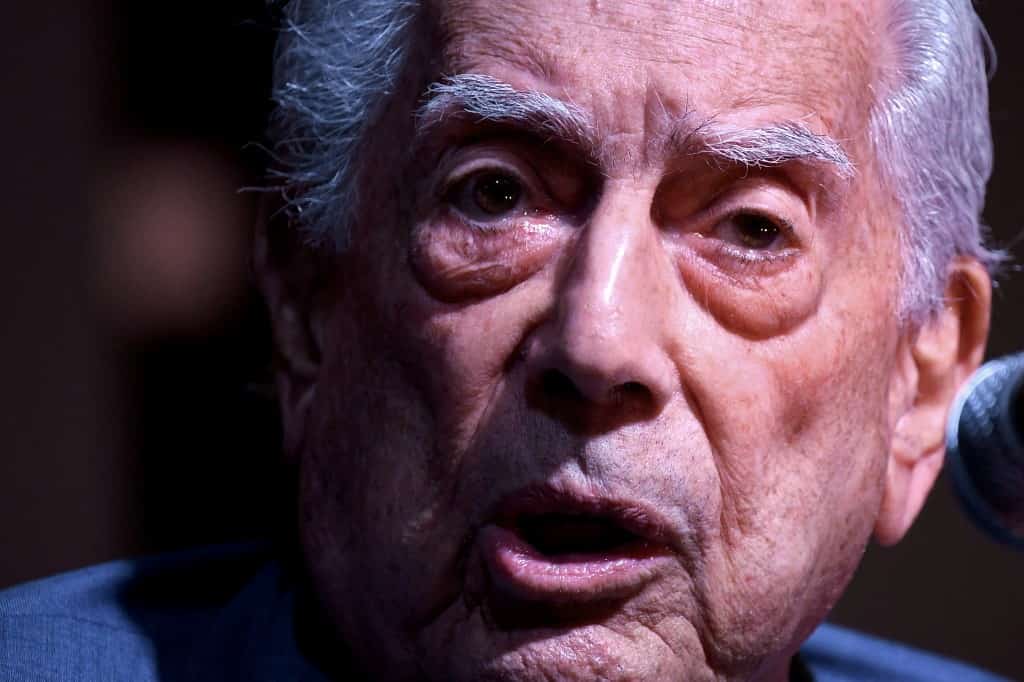The Spanish-Peruvian Nobel Prize winner Mario Vargas Llosa, who on Thursday will become the first writer to join the French Academy without ever having written in French, is the last and most prolific representative of the golden generation of Latin American literature.
A universal writer from the complex Peruvian reality, he was part of the so-called Latin American ‘boom’ along with other great writers such as the Colombian Gabriel García Márquez, the Argentine Julio Cortázar or the Mexicans Carlos Fuentes and Juan Rulfo.
His description of social realities in works such as “The City and the Dogs” or “The Feast of the Goat” have earned him universal admiration, to the point of being admitted to the French institution created by Cardinal Richelieu in the 17th century.
But his economically liberal positions have aroused hostility in intellectual circles that generally tend to the left.
“We Latin Americans are dreamers by nature and have trouble telling the difference between the real world and fiction. That’s why we have such good musicians, poets, painters and writers, and also such horrible and mediocre rulers,” he said shortly before receiving the Nobel in 2010.
Born in the southern Peruvian city of Arequipa on March 28, 1936 to a middle-class family, he was educated by his mother and maternal grandparents in Cochabamba (Bolivia) and then in Peru.
After his studies at the Military Academy of Lima, he obtained a degree in Literature and took his first steps in journalism at a very young age.
He settled in Paris in 1959, where he married his aunt-in-law Julia Urquidi, 10 years older (who would later inspire “Aunt Julia and the scribe”) and worked in various professions: translator, Spanish teacher and journalist for Agence France-Presse (AFP).
Years later, he broke up with Urquidi and married his first cousin and niece of his ex-wife, Patricia Llosa, with whom he had three children and fifty years of relationship.
He divorced Patricia after starting in 2015, at almost 80 years old, an affair with a well-known personality of the Madrid world, Isabel Preysler (ex-wife of singer Julio Iglesias), from whom he also ended up separating, at the end of 2022.
Prolific literary career
His literary career took off in 1959 with ‘Los jefes’, a book of short stories with which he won the Leopoldo Alas Prize. He gained notoriety with the novel ‘La ciudad y los perros’, in 1963, followed three years later by ‘La casa verde’, and consolidated with ‘Conversación en la Catedral’ (1969).
Then followed, among others, ‘Pantaleón y las visitadoras’, ‘La tía Julia y el escribidor’, ‘La guerra del fin del mundo’, ‘El pez en el agua’ (a memoir of his election campaign), ‘La fiesta del Chivo’ and ‘El sueño del celta’, published shortly before receiving the Nobel Prize.
Already then he warned that he wanted to write until the last day of his life, and he gave proof of that will with works such as ‘El héroe discreto’ or ‘Tiempos recios’, about the turbulent recent history of Guatemala, which won him the Francisco Umbral Novel Prize.
With his work translated into thirty languages, Vargas Llosa has been awarded the Cervantes, Príncipe de Asturias de las Letras, Biblioteca Breve, the Spanish Critics’ Prize, the Peruvian National Novel Prize and the Romulo Gallegos Prize.
He obtained Spanish nationality in 1993.
Laureate writer…
Controversial in politics -Vargas Llosa was seduced by Fidel Castro as a young man, but in 1971 he broke with the Cuban revolution because of the case of the poet Heberto Padilla, forced by the regime to a humiliating public “self-criticism”.
He was a candidate for the presidency of Peru in 1990. He was the favorite until the then unknown agronomist Alberto Fujimori appeared and was elected.
After his electoral failure, he returned to the arts, from where, according to him, he should never have left.
But he has not remained oblivious to the vicissitudes of world politics, lashing out in recent years against populism, “the disease of democracy”, which includes Chavism and Castroism, the ultra-right and the radical European left and Catalan independence nationalism.
He had a close friendship with Gabriel García Márquez, which ended abruptly in a confusing incident that both have preferred not to touch. “Let the biographers take care of that issue,” Vargas Llosa once said.






